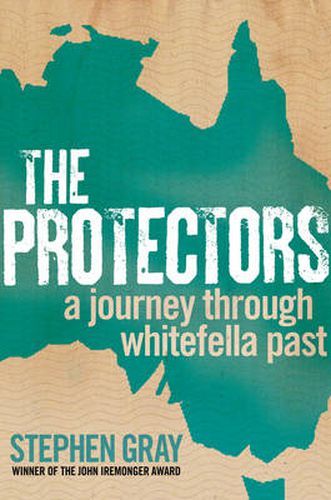The Protectors: A journey through whitefella past
Stephen Gray

The Protectors: A journey through whitefella past
Stephen Gray
On 13 February 2008 Kevin Rudd and Brendan Nelson gave two very different apology speeches to the Stolen Generations. Rudd alluded to racism, eugenics and the immorality of past policies. Nelson spoke of benign intentions, goodness and the hurt felt by those accused of wrongdoings. Both cannot be true - or could they?
Powerful and provocative, this is a beautifully written and very personal exploration of a little acknowledged part of Australian history - the role and motivations of the administrators and patrol officers who carried out these ‘protection’ policies. The questions Stephen Gray raises about guilt, judgement and good intentions apply as readily to the complexities of black/white relations today as they did one hundred years ago.
This is an intelligent book that challenges how we judge the past and asks what exactly it was that the Australian nation said sorry for. It is a fresh contribution to white Australia’s perennial search for national identity - an identity we need to now assert against the darker facts of our history on the continent.
Review
Melissa Castan
This powerful and provocative book explores an unspoken but important part of Australia’s history: the motivations and the role of the administrators and patrol officers who carried out the Indigenous ‘protection’ policies in Northern Australia. In short, Stephen Gray uncovers another side of the ‘Stolen Generations’ debate, the as-yet unheard voices of the ‘protectors’. Gray starts by juxtaposing the two national apology speeches of February 2008 in order to capture the dramatic divergence within white Australian views about our Aboriginal past. On the one hand, newly-elected Prime Minister Rudd alluded to racism, pseudoscientific theories of racial superiority and the profound injustice and inequality of past policies. In contrast, opposition leader Nelson spoke of benign intentions, goodness and acting in the best interests of the child. Gray describes this divergence as representing two Australian tribes, in a ‘war of words, perspectives and views of the world’ (p 5). He then confronts the question of what white Australia really meant when it apologised for its past? Why is mainstream Australia still so equivocal about the Apology?
Gray has sought out the people associated with Aboriginal assimilationist policies, particularly the administrators and welfare directors who wielded largely unconstrained guardianship powers over most Aboriginal lives. The book examines the lives and work of men such as Professor Baldwin Spencer (the Territory’s second chief protector) and Dr Cecil Cook (‘the most hated man in the Territory’). He also makes good use of the recollections of patrol officer Colin Macleod, Ted Egan (a patrol officer, later Administrator of the Northern Territory) and Colin Tatz (who wrote a thesis highly critical of the policies and practices of Aboriginal administration in the Northern Territory in the early 1960s). Gray examines what it was like to live on a cattle station filled with Aboriginal residents, whose social security benefits were ‘lining the station owners’ pockets’ (p 185), and the casual racism of ‘old white Darwin’. But the bulk of the book revolves around the life, work and motivations of Harry Giese, who was Director of Welfare in the Territory from the 1950s through to the 1970s. Gray weaves the story of ‘Giese’s empire’, from a young man, through to the administration of the end days of the assimilation policy crucial to the treatment of Aboriginal people we now describe as the Stolen Generations, and into his old age.
The real power of this book is not just the personal histories of these men; it lies in the story Gray tells of his own journey; he questions his own motivations for his pursuit of the past, and the ambiguities inherent in our contemporary judgments of Australia’s treatment of Aboriginal citizens, as well as his, and our current search for resolution of ‘unfinished business’. When Gray adds the subtitle ‘a journey through whitefella past’ he is not just referring to the protectors’ — he is writing about himself.
Gray may have lifted the lid on Australian history’s great Pandora’s box. This is a captivating, insightful and important book that will challenge many readers’ assumptions, and illuminate one of the ‘darkest aspects of our history’ (a phrase used by Justices Gaudron and Deane in the Mabo case). We could do no better than to include this book in the national curriculum; it should be read by all Australians concerned about the debates surrounding our national identity, our history and our Apology.
MELISSA CASTAN teaches law at Monash University, and has a special interest in Indigenous legal issues. This review first published in
This item is not currently in-stock. It can be ordered online and is expected to ship in approx 3 weeks
Our stock data is updated periodically, and availability may change throughout the day for in-demand items. Please call the relevant shop for the most current stock information. Prices are subject to change without notice.
Sign in or become a Readings Member to add this title to a wishlist.


